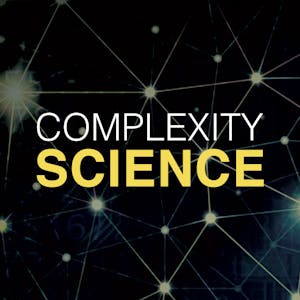Introduction to Complexity Science
About this Course
This course explores the features of complexity science. Our world is connected by an abundance of complex systems. Across all levels of organizations from physical, biological world to the social world, we may think of the connectivity between individual elements and how they interact and influence each other. For example, how humans transmit pandemics within a group, how cars interact in the traffic system and how networks connect in governmental organizations. Although these systems are diverse and different, they have surprisingly huge features in common. In the past several decades, the study of complexity science has been increasing. It is widely acknowledged that an innovative, integrated and analytical way of thinking is essential for understanding the complex issues in the human societies. In this course, we will aim to give everyone a comprehensive introduction of the complex systems, to talk about the resilience, robustness and sustainability of the systems and to learn basic mathematical methods for complex system analysis, for example regime shifts and tipping points, the agent-based modelling, the dynamic and network theories. Most importantly, we will implement the theories into practical applications of cities and health to help students gain practice in complex systems way of thinking.Created by: Nanyang Technological University, Singapore

Related Online Courses
This Specialization is intended for individuals and organizations interested in developing skills and strategies to create and support sustainable cities. Through these four courses, you will gain... more
Welcome to Unreal Engine Fundamentals course: Your gateway to the world of game design using Unreal Engine 5. In this introductory course, we\'ll equip you with essential skills to navigate Unreal... more
This is a self-paced lab that takes place in the Google Cloud console. In this lab you will learn how to migrate a Cloud SQL for MySQL database to Cloud Spanner using Google Cloud\'s data migration... more
In this course, learners will become familiar with principles and theories of global health problems, and major challenges and controversies in improving global population health as well as... more
Welcome to this Specialization focused on the principles of Microeconomics. This program is not merely about the study of money, but explores the functional roles of individual decision-makers,... more








